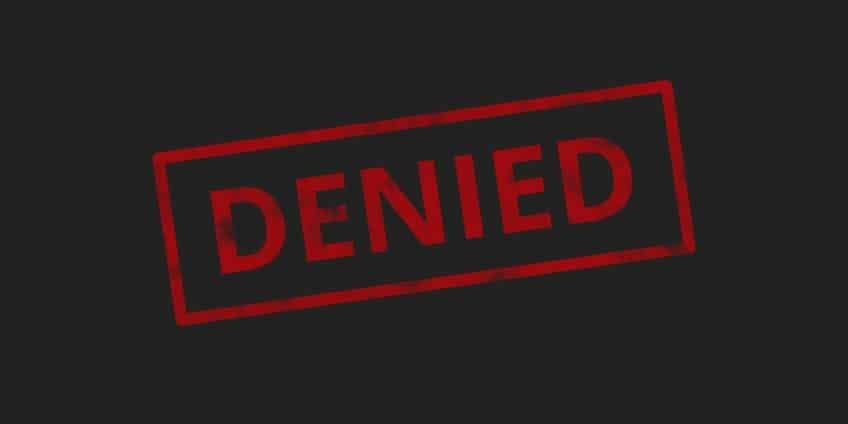Bad Faith In Uninsured Motorist Cases
Insurance Bad FaithFlorida Supreme Court holds that a confession of judgment does not prevent a plaintiff from obtaining a trial on damages in Adrian Fridman v. Safeco Insurance Company of Illinois, Case No: SC13-1607 (February 25, 2016). This puts an end to a practice discussed in GEICO v. Bottini where the UM carrier would get “two bites at the apple” and significantly raised the cost of litigation.
Facts Of The Case
Fridman was injured in a car accident. He filed a civil remedy notice of insurer violation pursuant to section 627.155, Fla. Stat. after Safeco refused to pay him the $50,000 in UM coverage that he had purchased. Thereafter, he was forced to file a lawsuit to seek his damages in court.
Fridman’s civil remedy notice stated the following as the basis of the insurance company’s bad faith:
Failure to pay UM policy limits of $50,000 in a clear liability crash with over $12,000.00 of property damage to insured’s vehicle. Insured has sustained medical bills in excess of $16,800.00 [and] out of pocket medical expenses in excess of $8,000.00. Insured has sustained C3/4 and C5/6 disc herniations, as well as L5/S1 disc herniation which displaces the S1 nerve root. NCV/EMG testing revealed C6/7 radiculopathy and right carpel tunnel syndrome. Insured is without any health insurance to cover future medical treatment which insured will require. Insurer has failed to offer the $50,000.00 uninsured motorist coverage policy limits in spite of the demand to do so, and has instead made a wholly inadequate offer of $5,000.00.
As you can see, Safeco’s offer was only $5,000, which was less than the medical expenses. This happens all too often with insurance companies.
Thereafter during the litigation, Safeco decided that they needed to pay the $50,000 thinking that it would end the case. The sent a check for $50,000 to Fridman and sought a “confession of judgment” in the amount of $50,000. The trial court denied to allow the case to end completely for the $50,000 payment and instead allowed the plaintiff to take the case to trial. A jury awarded $1,000,000 to Fridman.
After the trial, the court reserved jurisdiction to allow the plaintiff to amend his lawsuit and add a count for insurance bad faith. Insurance bad faith is the failure to act fairly and honestly. In this case, the bad faith alleged against Safeco was a failure to evaluate the case as a policy limits case and a delay in paying policy limits. Had Safeco decided to pay policy limits within 60 days after the civil remedy notice of insurer violation, then there would have been no bad faith under the statute.
On appeal, the Fifth DCA reversed the trial court’s ruling and thereafter, this appeal to the Florida Supreme Court ensued.
Important Takeaway From This Case
If there is one bad faith case that you should know, it is this one. Before this case, insurance companies providing uninsured motorist’s coverage (UM) thought that there was no consequence for delaying a UM settlement. Under GEICO v. Bottini, they knew that all they had to do was settle the UM case for policy limits (even after the 60 days expired on the civil remedy notice) and the judgment would be in the amount of the policy limits. Thereafter, if the plaintiff actually wanted damages for bad faith (for a delay in payment and incurring attorney fees and costs), then an injured plaintiff was required to begin a second litigation to prove damages.
As you can imagine, this is a burden that is very hard to meet (and hence why insurance companies liked it). Fortunately, the Fridman case puts an end to that legal saga. If you have been subject to a lack of good faith from an insurance company in a UM case, Fridman allows you to amend your lawsuit after policy limits are paid and still take the case to a jury trial for a determination of damages.
Fridman Stopped The Double Dipping
At that point, if your damages are more than the policy limits (or what was offered), then the jury’s determination of damages becomes the “measure of damages” for the bad faith case. This means that the bad faith case is just about whether the insurance company committed bad faith or not (as it should be) rather than bringing in testimony from doctors and experts on the amount of damages because that has already been done.
Fridman stopped the “double dipping” that was going on with insurance companies in UM cases. There is one place to seek a jury verdict on damages-that is done in the UM case. The insurance company does not get to re-litigate the amount of damages so long as the insurance company was a party to the lawsuit and had an opportunity to defend.
A Jury’s Verdict Is A Binding Measure Of Damages
If the jury finds that the insurance company committed bad faith, then a judgment is entered against the insurance company for the damages exceeding the amount already paid plus attorney fees. Section 627.155, clearly provides for “reasonable attorney’s fees” for a successful plaintiff:
Upon adverse adjudication at trial or upon appeal, the authorized insurer shall be liable for damages, together with court costs and reasonable attorney’s fees incurred by the plaintiff.
On the other hand, if the plaintiff is not successful in proving that bad faith has occurred, then the plaintiff is left with just the payment of the underlying policy limits.
What Should You Do If Your Insurance Company Does Not Treat You Fairly And Honestly?
If you are faced with an insurance company that refuses to deal with you honestly and fairly, then you should get help from an attorney. With an insurance bad faith case, the conduct of the insurance company is what is at issue. You cannot make up a bad faith case and you cannot trap an insurance company with bad faith. Instead, bad faith is a choice that the insurance company makes on their own.
With the help of a Lakeland, FL insurance bad faith attorney, you can determine whether the insurance company has committed bad faith and whether you can collect damages as a result. A consultation with a Lakeland, FL personal injury attorney is free to discuss whether you have a case. Schedule your free appointment today.


